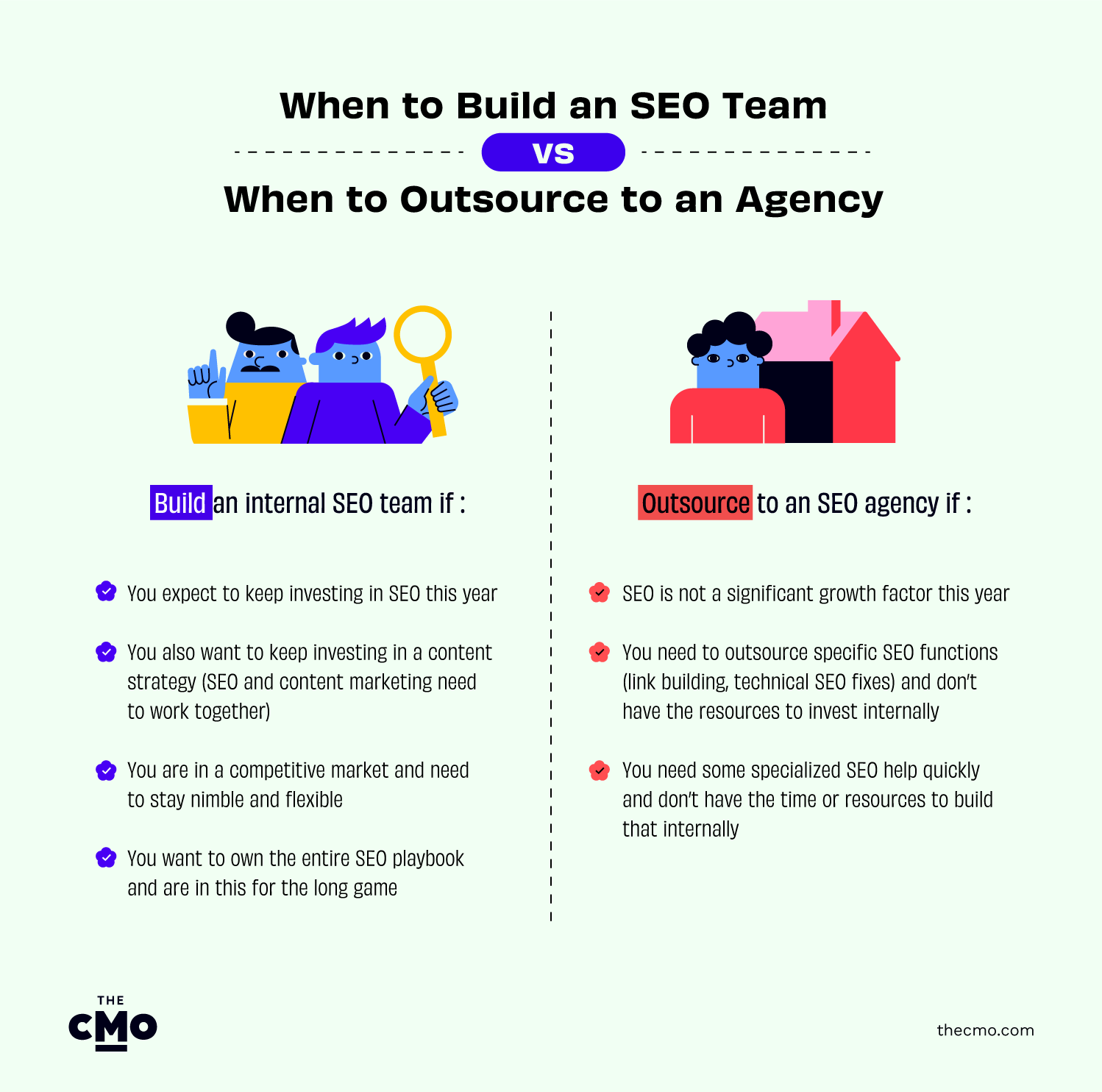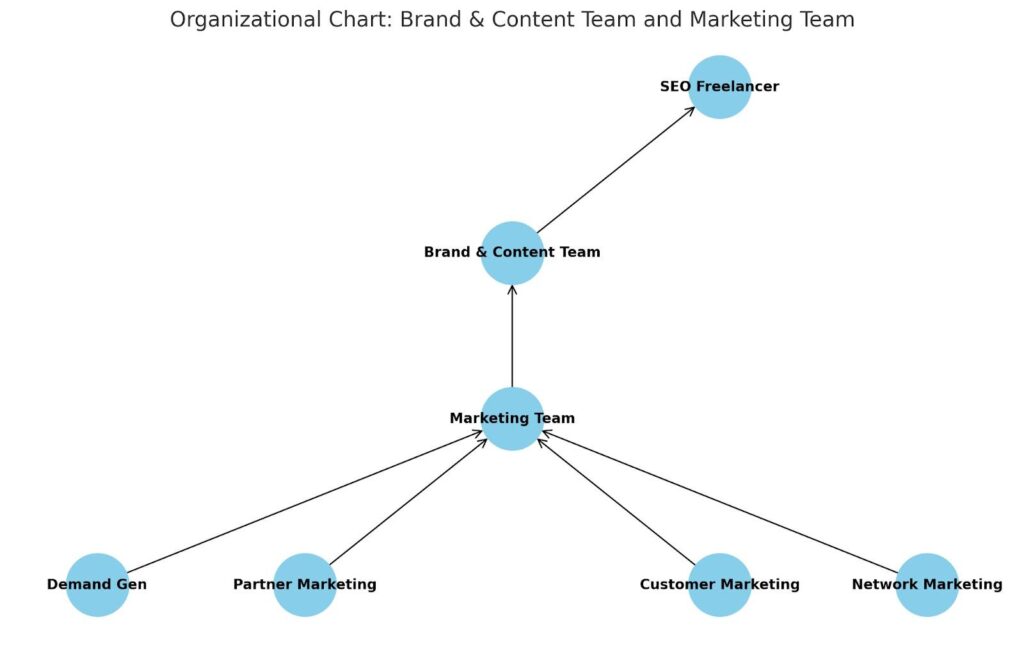Are SEOs destroying the Internet?
A recent piece in the Verge seems to think so, calling all SEOs ‘content goblins,’ portraying us as pirates out to make a quick buck, Jack Sparrowesque individuals exploiting the search landscape at society’s peril.
I’ve been in the marketing/SEO space for almost two decades. As COO of Venture 4th Media, I manage the content operations of over 100 websites, of which SEO is one of our primary traffic drivers. I also write a weekly content marketing newsletter each week that deep dives into these topics.
This puts me smack dab in the middle of this debate. And it's got me wondering… should we keep investing in SEO as marketing professionals?
Contrary to Verge’s bleak outlook and one-dimensional view of SEO, I believe that thoughtful investment in SEO and strong SEO teams are critical parts of any robust digital marketing strategy.
Savvy CMOs and marketing leaders know that not just any old SEO approach will do. The importance of SEO transcends tactics, quick gains, and the playbooks du jour; it should be the foundational part of a long-game outlook to digital marketing.
So, while I sit on my big pile of money waiting for the next alligator party, let’s talk about how a smart, creative, and straight-up approach to SEO can do more than just bust those negative myths out there – and power up our businesses in ways that matter.
But first, Google.
The Reality of the SEO Symbiotic Relationship with Google (And Why We Should Care)
While I don’t want to give the Verge article any more gasoline to its dumpster fire on the SEO industry, I’ll address a few things. SEO has evolved a lot in the past decade.... so much so, that having an SEO cheat sheet is necessary. Many things have changed in search marketing, and not just because of AI.
But one thing has remained constant - Google is still the powerhouse search engine we need to work with.
While many SEOs criticize Google’s lack of transparency and frequent core updates, the Verge article was overly harsh on Danny Sullivan, Google’s Public Liaison for Search.
As Danny points out in his thoughtful response to Verge's criticism, Google has improved search quite a bit and is more transparent than ever with SEOs and the updates to the search landscape.
Today’s SEOs have many resources directly from Google to learn more about SEO, including:
- The often-updated Search Quality Rater Guidelines
- And Google’s Search Status Dashboard.
Today’s SEOs are more content strategists than clickbaity grifters who underhandly control the top of the SERPs. Yes, I sometimes have a somewhat tumultuous relationship with Google, but for now, it’s still one of the best sources of organic traffic I know.
But is the Google Rollercoaster Ride Worth it?
Yes. In my past decade in SEO, I’ve seen firsthand how Google algorithm updates can feel like a rollercoaster. But each update from Google forces us to step up our game, improve the content quality, and refine our audience growth strategies.
Remember the Panda update? It was a game-changer that pushed us to prioritize quality content over keyword-stuffed pages.
When Google introduced E-A-T (now E-E-A-T) – it forced SEOs to look at the quality of the content they published and who was delivering that content.
More recently, the rise of AI and machine learning within Google's algorithms has been a hot topic, and we’ll continue to see these shifts in search as Google gets better at serving users improved search results. In the meantime, there's a great opportunity to use generative AI to improve your SEO.
It's not just about understanding keywords anymore; it's about grasping the context of the intent behind a search query. This shift requires us to think more about the user's journey, their questions, and how to provide the best answers.
Today’s SEOs must be more in tune with the content's quality, the publication's purpose, and the site's authors and contributors. With the focus on E-E-A-T, Google tells us as SEOs and marketers that users demand actual human, first-person experiences.
In the recent Helpful Content Update, Google clarified its desire for first-person experiences by giving forums such as Reddit top-ranking spots in many SERPs. While Reddit may lack the overall experience signals that E-E-A-T demands, it’s crystal clear to me that Google is trying to serve its user's content from an actual human perspective.
As we shift into the next phase of Google search, with Google’s SGE (Search Generative Experience), we will continue to see the SERP landscape change, once again forcing SEOs to adapt to fresh strategies to remain relevant.
Each update from Google nudges us SEOs to step up our game, think differently, and refine our strategies. And for us as marketing leaders, that starts with a clear, solid SEO team structure to help implement the best practices for our businesses.
CMO Perspectives: Are You Increasing or Nixing Your SEO Budgets in 2024?
I reached out to 25 marketing leaders and asked, “With the changing landscape in SEO, as a CMO, are you increasing, decreasing, or keeping the SEO budgets and teams the same as this year?”
Only 4% of CMOs said they would decrease SEO in next year’s budgets. Most respondents said they would keep things status quo or even increase budgets for search marketing in 2024.
For those looking to decrease SEO in the new year, they aren’t planning to leave it in the dust forever; they’re just shifting their overall marketing focus.
Laia Quintana, Head of Marketing and Sales at TeamUp, explains, “In light of these developments, I’ve decided to invest less in SEO in 2024. This doesn’t mean that I’m abandoning SEO. On the contrary, I see it as an opportunity to reassess our strategy and focus on other aspects of our marketing mix that can drive growth for our company.”
It’s not about cutting ties with SEO but understanding when to dial back and when to ramp up SEO initiatives. Laia also shows us that SEO does not happen in isolation; SEO should be part of the larger marketing ecosystem that needs constant nurturing and adjustments.
For those looking to maintain or increase their SEO spend, it’s not ‘business as usual’ with everything that has happened in the past year. 2023 has been one of the most volatile years in SEO, but that doesn’t mean that SEO is dead – the strategies are just shifting, as Peter Michaels, CEO of Yeepsy, explains:
“The shift isn't just about increased financial allocation. It's a recalibration of strategy, focusing on smarter investments in SEO techniques prioritizing user-centricity, quality content, and adapting swiftly to search engine updates. Balancing innovation with proven strategies ensures a resilient SEO investment strategy that navigates the complexities of the digital landscape in 2024.”
It’s time to get scrappy, my friends.
Building an SEO Team for the Win
Considering the above perspectives, it's clear SEO isn't a one-size-fits-all approach. And this advice still rings true regarding building a solid SEO team structure.
When thinking about how to structure an SEO team, we have to think about the overall business needs, how SEO can be a lever for growth (company-wide), and be realistic about the resources at hand. We must also consider the overreaching company goals:
- Are we preparing for an exit soon?
- Do we want to invest in long-term growth strategies or just need quick wins?
- How does our current market position influence our SEO strategy (do we need to grow, compete, or maintain market position)?
- How will we measure the success of our SEO team and align this with overall business KPIs?
Not every company will need to build an SEO team. There are some fantastic SEO agencies and contractors out there that can support your overall goals.
In the fast-paced world of SaaS, however, I believe that building a resilient and adaptable in-house team is more than just a strategic move - it’s necessary for long-term success. But I’m biased because SEO is how we’ve grown our business.

Building a Strong SEO Team Structure: Key Considerations
There are many ways to set up your SEO team. Depending on your company's size, one person can wear multiple hats.
At the bare minimum, you’ll probably want to invest in an SEO Manager or Strategist, build out some Technical SEO capabilities, and then, of course, have a content creation specialist who can implement these ideas.
Here are some essential roles to consider when you’re building that SEO team structure:
The SEO Strategist
If I were building out an SEO team, this would be my first and most important hire. If you are just starting with SEO, this person can wear more than one SEO hat.
This person should plan and execute your website SEO campaigns, analyze data and trends, and know your product inside and out. They should also learn your user journey and be able to map out an SEO plan that targets all parts of the user journey.
The Content Creator
The content creator(s) should work directly with the SEO team. They also shouldn’t be siloed or cut off from the marketing, sales, or product marketing teams. I prefer expert writers with real-world experience in the field who can take the time to get to know the customer persona and craft articles.
Depending on the types of content you wish to create, you may need to pull in some freelance copywriters or writers who specialize in whitepapers, case studies, or product pages. Content writers who can speak SEO can also do some basic on-page optimizations and use SEO optimization tools to help make the content better.
The Technical SEO Specialist
This role is foundational but one you can outsource if needed. This person focuses on the technical parts of SEO, such as site architecture, mobile optimization, site speed, and indexability. As a website grows in complexity, this role also becomes more crucial.
Other SEO Team Members Worth Considering
- Link builder/ PR/ outreach coordinator: Someone who can build high-quality backlinks or find relevant PR and guest posting opportunities.
- SEO analyst: Someone to monitor and evaluate the performance of SEO and content strategies. This could also be part of the SEO Strategist role, but this may be a separate function as the company expands.
- CRO specialist: Someone to own your conversion rate optimization makes sense as traffic grows.
- Social media dream team: While social media is somewhat SEO adjacent, I think it’s integral to building the off-page trust signals and brand that helps support a long-term SEO strategy.
- Web developers: Again, this may fall to another part of the company, but having web developers who understand the UX and SEO requirements is vital as you build these assets.
But every company is going to structure the SEO team differently. At PartnerStack, for example, their Brand and Content team has a Content Manager and Designer, while they work with freelancers and contractors to implement the overall SEO strategy:
“Our Brand and Content team has a Director, Content Manager, and Designer. This team works with a freelance SEO consultant who provides keyword research and SEO optimization recommendations,” says Joe Kevens, Director of Demand Generation, PartnerStack, and Founder of B2B SaaS Reviews.
But Don't Forget the Soft Skills

As you think about your SEO team structure, I implore you also hire for soft skills as much as for the required technical skills. SEO is so much more than finding the right keywords or knowing how to use Ahrefs — soft skills make the best SEOs stand out from the pack.
Hiring a seemingly superstar SEO strategist may sound like a dream come true, but that depends. If your website has been around for a long time, has excellent domain authority, and has a robust off-page SEO profile, that superstar SEO hire can take the growth to another level.
If you are starting in SEO, have a baseline of content (or no content at all), and have no domain authority, hiring someone from a team where anything and everything indexes and ranks right away is not a good bet.
When I hire a new SEO type, I like to hire people who are intensely curious and unafraid to try new things. Since so many of our SEO projects are for newer or growing websites, I also like to look beyond their portfolio of success, and that’s where soft skillsets make the biggest difference, which is what many marketing managers miss.
Here are my go-to soft skills:
Grit
I’ve been talking a lot about grit these days as an essential trait for anyone working in content. After the Helpful Content Update, many websites saw a significant drop in traffic. Plus, as Google continues its updates, the SERPs can be a literal mess.
I’ve had moments where I need to take a breath, step back, and remind myself that nothing lasts forever – this is grit. And it’s one of the most vital soft skills for any SEO professional.
Communication
SEOs must communicate and sell their ideas and plans to the rest of the team or other teams within an organization. They need to be able to analyze the data, sure. But they also need to be able to take that data and speak sales, marketing, or content. A great SEO is a great communicator!
Adaptability
The things that worked in SEO last year may not work this year.
Google is always changing. The rulebooks constantly change. And great SEO doesn’t say, ‘This is what worked last year.’ They keep on top of the latest trends yet have humility about them. They want to learn and are not afraid to admit they might not know something.
Prioritization
Only some things in SEO need to get done to start seeing some progress.
I’ve hired and worked with many SEO folks over the years, and I can always tell a great SEO vs an average one by how they think about prioritization. A star SEO person will naturally prioritize and explain the rationale behind these decisions.
Our team is a scrappy team, so this is a must-have soft skill. You can’t implement every idea; tell me which ones you think we need to start with!
People Skills
Unlike the Verge article implied, SEOs are not content goblins that thrive on deceiving people.
The best SEOs are sincerely trying to make the internet a better place, and to do this, they need to have read some of the best books on internet marketing and possess some seriously excellent people skills. Anyone who rises the ranks in SEO is a people leader, and this is something I look for when I hire.
Beyond SEO: Collaborating Across Departments
One major problem with building a strong SEO structure in an organization is thinking SEO needs to live in a world outside the company's core parts.
But how do you avoid the SEO team being siloed in a growing SaaS company where there are several different parts of the company? That’s the question I asked Joe Kevens:
“I think the first step to integrating SEO and search marketing with the rest of the team in a growing SaaS company is for the SEO expert to "bring people in" by sharing how they approach SEO and how they do it. To many, SEO is a vague catch-all that is poorly understood. Consequently, many don't know how to contribute to SEO because they don't know how it works.”
As marketing leaders in our company, it’s up to us to learn the basics of SEO and to have these ongoing feedback loops in our company structure, from SEO to the product team to sales and marketing. We all need to, at the very least, “speak SEO” and understand its role in the overall company.
Case Study: How PartnerStack Structures their SEO Team
There are many ways to structure a great marketing team, and we’ve given a ton of advice here on how to do that, but how do you ensure that your marketing teams play nicely with the SEO team?
I love to think in terms of feedback loops within a company to ensure that the communication continues and there is ongoing learning between the SEO and marketing teams in a company.
As marketing leaders, we are responsible for ensuring we build these channels of communication within our company. The team at PartnerStack does just that:

The brand and content team hosts bi-monthly content brainstorms with the entire marketing and network marketing team. Next, they curate their input on content topics, rank them according to priority, and work with the SEO freelancer to execute the plan.
Navigating the Future of SEO - A Roadmap for Marketing Mavericks
As we conclude this deep dive into SEO strategies and SEO team structures, it’s clear that this landscape is not for the timid. The rules of SEO constantly change and evolve – I find that exhilarating.
For CMOs and marketing leaders, the road ahead is not just about keeping up with the latest trends or updates in SEO but also about strategically aligning your SEO team structure to the overall company teams and vision.
Remember, SEO is not a standalone, nice-to-have tactic – it should be an integral part of your company's entire marketing and growth strategy.
We have the goods for you if you’re keen on staying updated and one step ahead of other marketing leaders. Make sure to subscribe to our newsletter to get the insights and playbooks that matter!
We’ve got this! And, if anyone gets invited to the next SEO Alligator party, make sure to include me; I’ve been missing out!


